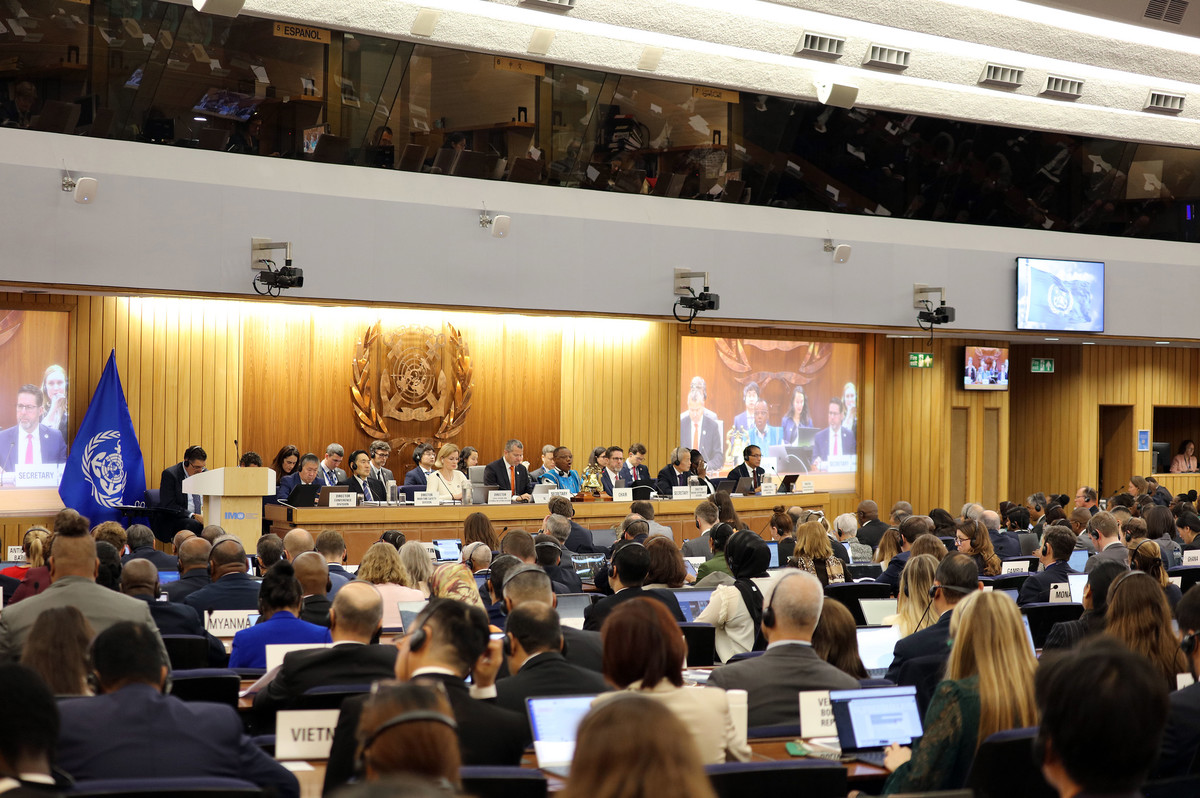IMO Net-Zero Framework vote delayed by one year after chaos session
The US, Saudi Arabia and other mostly oil-producing nations have been lobbying heavily to block the IMO’s Net-Zero Framework from being adopted this week.
 IMAGE: IMO member state representatives at the plenary session this week. IMO
IMAGE: IMO member state representatives at the plenary session this week. IMO
A draft framework was approved by 89% of voting IMO Marpol Annex VI signatory member states in April. To adopt the framework this week, the US-Saudi coalition would have to bring that vote percentage down below two-thirds of these member states.
Only IMO member states that have signed up to Marpol Annex VI would have been allowed to vote this week. As it played out, no one were allowed to cast their vote as it was scuppered and deferred for a year.
The IMO Marine Environment Protection Committee (MEPC) normally conducts the order of the day in a consensus-based fashion.
This week would be different. A backdrop of tariff threats and other forms of retaliation from US President Donald Trump and other US officials shook up the negotiations.
Shipowner groups in Greece, Cyprus and Malta have balked at the potential consequences of a global emission regulation on their fleets, saying shipping companies and fuel producers are not ready for it. They wanted more deliberations and a delayed decision.
Today, they got their way. IMO delegates headed off for lunch without coming to any agreements.
“After a morning of delay and disruption that left the plenary room in disarray, we have now broken for lunch,” said Christiaan De Beukelaer of the University of Melbourne, who attended the IMO plenary sessions.
“One thing is clear to me: those moving to delay and postpone do so with a clear intention of killing the Net-Zero Framework.”
After lunch, Saudi Arabia called a roll call vote to delay the adoption decision by 12 months.
IMO MEPC Chair Harry T. Conway then confirmed that 57 member states had voted to defer a decision on the Net-Zero Framework by a year. That was enough to put the regulation on ice for now as these motions are decided by simple majorities and only 49 states voted against a deferral.
“This outcome is a devastating indictment of Member States’ lack of courage to stand in solidarity with climate vulnerable countries to achieve a just and equitable maritime transition,” said Emma Fenton of non-profit Opportunity Green.
“Faced with pressure, too many governments chose political compromise over climate justice, and in doing so, abandoned the countries bearing the brunt of the climate crisis.”
By Erik Hoffmann and Konica Bhatt
Please get in touch with comments or additional info to news@engine.online





